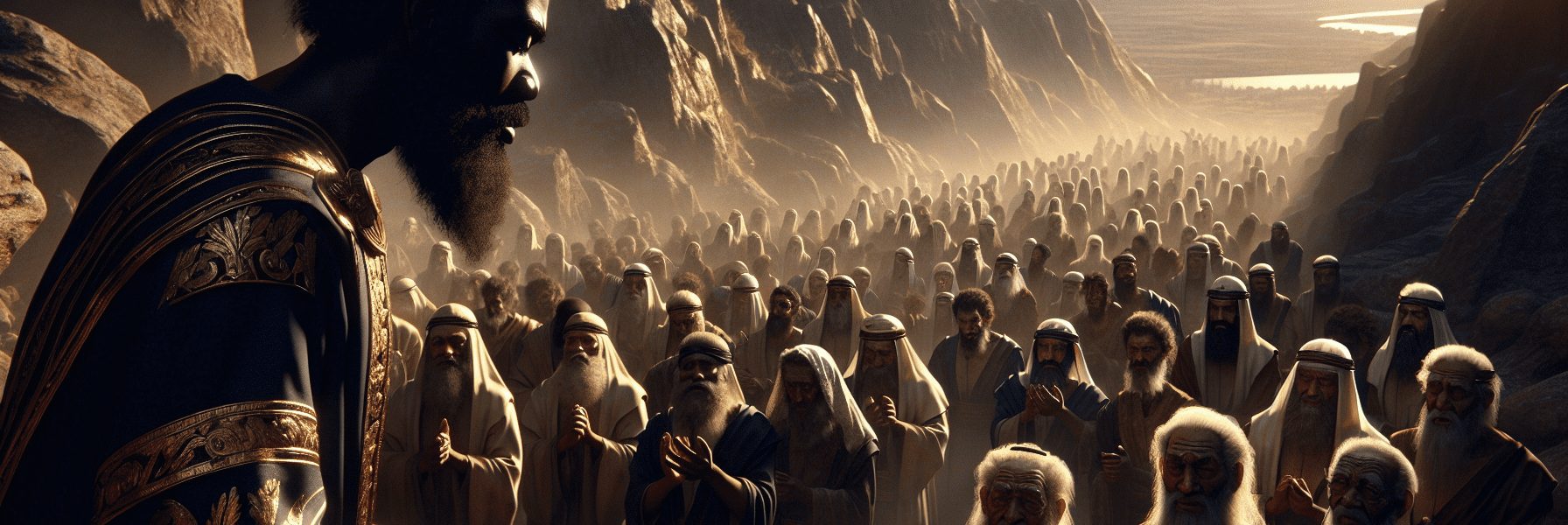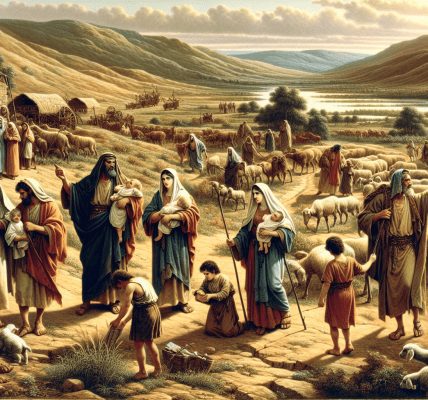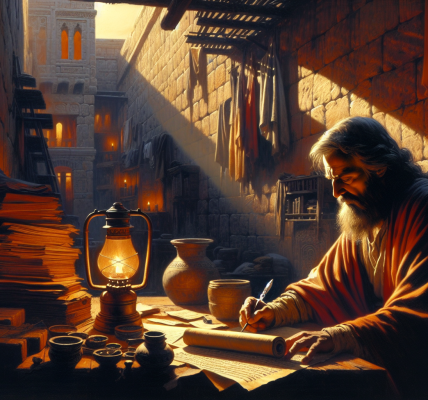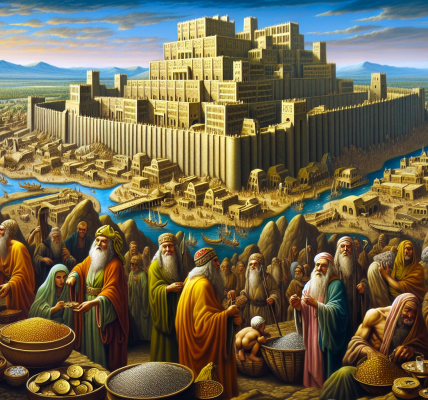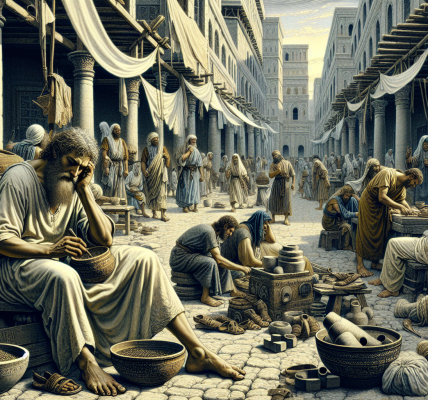**The Rise of David: The Conquest of Jerusalem**
The sun hung low over the rugged hills of Judah, casting long shadows across the rocky terrain. The air was thick with the scent of dust and sweat as the warriors of Israel gathered around their newly anointed king, David. The elders of Israel had come to Hebron, their faces lined with years of struggle under Saul’s fractured reign, and with solemn voices, they declared, *”We are your bone and your flesh. In times past, even when Saul was king, you were the one who led Israel out and brought them in. And the Lord your God said to you, ‘You shall shepherd My people Israel, and you shall be prince over My people Israel.’”*
David, his beard streaked with the wisdom of years spent in wilderness and warfare, bowed his head in acceptance. The weight of the crown was heavy, but the weight of the Lord’s calling was greater. He had waited long for this moment—not seized by ambition, but bestowed by divine providence.
### **The Stronghold of Zion**
Yet, the land was not fully his. The Jebusites, a stubborn and prideful people, still held Jerusalem, their fortress city nestled high upon the rocky crags of Zion. Their walls were thick, their towers unshaken by previous assaults. So confident were they in their defenses that when David’s forces approached, they mocked him, shouting down from their battlements, *”You shall not come in here, but the blind and the lame will ward you off!”* Their laughter echoed against the stone, a taunt meant to weaken the resolve of Israel’s warriors.
But David’s eyes burned with holy fire. Turning to his men, he declared, *”Whoever strikes down the Jebusites first shall be chief and commander!”* The challenge was met with fierce determination. Among the mighty men, Joab, son of Zeruiah, stepped forward. A seasoned warrior with sinews of iron and a spirit unbroken by battle, he led the assault. Through the hidden waterways and crevices of the city, Joab and his men scaled the heights, their swords gleaming in the fading light. The Jebusites, caught off guard, fell before the relentless tide of Israel’s fury.
By dawn, the stronghold of Zion was David’s. The mocking voices were silenced, and the city was renamed—*The City of David*. Its walls were fortified, its towers raised higher, for David knew this was no mere conquest. The Lord had ordained it. The prophet Samuel had long foretold that a king from Judah would arise, and now, in the heart of the land, David established his throne.
### **The Mighty Men of Valor**
But a kingdom is not built by one man alone. Around David gathered warriors whose deeds would be sung for generations. Among them stood *The Three*—Josheb-basshebeth the Tahchemonite, Eleazar the son of Dodo, and Shammah the son of Agee. These were men who had fought beside David in the days of his exile, when the caves of Adullam and the wilderness of Ziph were his refuge.
Josheb-basshebeth, chief among the captains, had once wielded his spear against eight hundred men in a single battle, slaying them all before his arm grew weary. Eleazar stood firm in the barley field of Pas-dammim when the rest of Israel fled before the Philistines. Though his hand clung to his sword until it froze in his grip, he fought until the Lord brought a great victory. And Shammah, who defended a plot of lentils against a band of raiders, striking them down though he stood alone in the midst of the field.
Then there were *The Thirty*, an elite band whose names were etched in the annals of courage. Men like Abishai, Joab’s brother, who slew three hundred with his spear; Benaiah, son of Jehoiada, who chased a lion into a pit on a snowy day and struck it down, who faced an Egyptian giant armed only with a staff, wrenching the spear from the enemy’s hand to slay him with his own weapon.
### **The Water from Bethlehem**
One evening, as the heat of summer pressed upon them, David sighed, his throat parched. Gazing toward the hills of Bethlehem, his birthplace, now held by Philistine garrisons, he murmured aloud, *”Oh, that someone would give me water to drink from the well of Bethlehem that is by the gate!”*
The Three heard their king’s longing. Without hesitation, they strapped on their swords, slipped through the enemy lines, and descended into the valley where the Philistine sentries stood guard. Under cover of twilight, they fought their way to the well, drew water, and carried it back to David’s stronghold.
When they presented it to him, David’s eyes welled with tears. *”Far be it from me, O Lord, that I should do this!”* he cried. *”Shall I drink the blood of these men who went at the risk of their lives?”* And with that, he poured out the water before the Lord as an offering, for no earthly thirst was worth the blood of such loyal men.
### **The Kingdom Established**
Thus, David’s reign was secured—not by his strength alone, but by the Lord’s favor and the faithfulness of those who served him. The fortress of Zion became the dwelling place of the king, and from there, the Lord’s promise began to unfold. For in the years to come, this city would bear a greater name—Jerusalem, the dwelling place of the Most High.
And so, the chronicles of David’s rise were written, not merely as records of battle, but as testimonies of God’s faithfulness. For the Lord had chosen a shepherd boy to lead His people, and through him, the dawn of a greater kingdom was coming.
